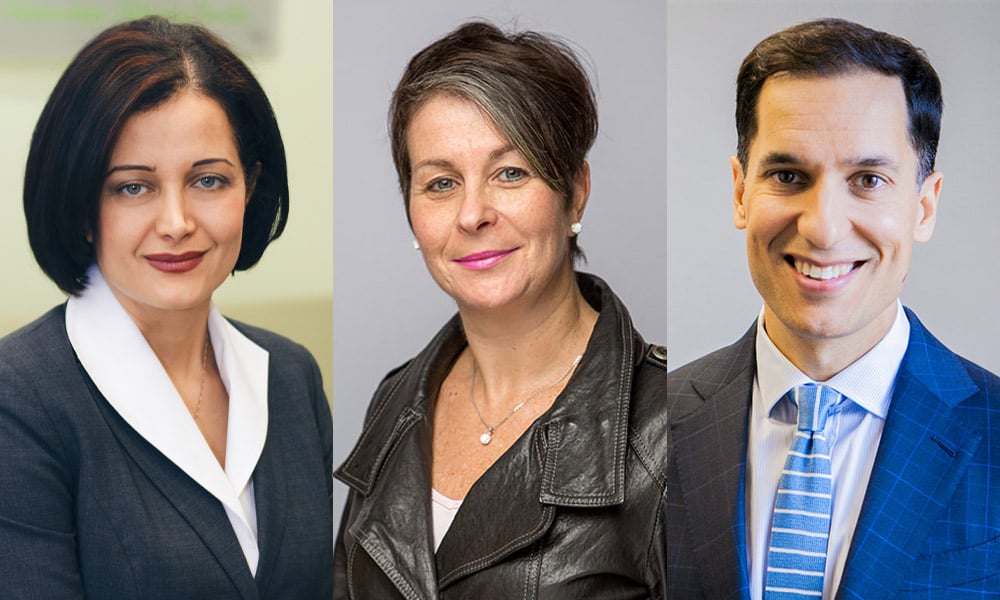
One lawyer says program hurts those it seeks to help

The portal for applications to a new pathway to permanent residence will open Thursday, and immigration lawyers say the process bypasses them and compromises procedural fairness for newcomers.
Immigration, Refugees and Citizenship Canada announced the new pathway on April 14. There are 90,000 open spots for healthcare workers, essential workers and post-secondary graduates who are currently in Canada. Lawyers say the system is set up so that the applications are to be done entirely online by the applicants themselves. This will lead to mistakes, denied applications, and the first-come-first-served format will leave a short space of time until capacity is reached, which will be difficult for essential workers to accommodate on a Thursday, they say.
This undermines the solicitor-client relationship and s. 91 of the Immigration and Refugee Protection Act, which provides for representation by counsel, says Ravi Jain, a managing senior lawyer at Green and Spiegel LLP and past chair of the Canadian Bar Association’s immigration law section. Jain has also been leading advocacy efforts with the Canadian Bar Association’s liaison at IRCC.
“Essentially, what it does is it marginalizes the role of representative and, in turn, it's breaching the rights of individuals to be represented by counsel in important legal processes that have significant long-term implications,” says Arghavan Gerami, founder and senior counsel at Gerami Law PC.
“The government should not be setting up applications in a way that encourages applicants to proceed without legal representation,” she says “… It's procedurally unfair. And it can also amount to a breach of fundamental justice.”
In the announcement on the new pathways, IRCC states that the initiative's intended focus is on newcomers working in healthcare and other essential roles, who have contributed significantly to the country during the pandemic.
But the way the system is set up hurts the very people it was intended to help, says Barbara Jo Caruso, a certified immigration and citizenship law specialist and founder of Corporate Immigration Law Firm.
When the portal opens on Thursday, the process will resemble buying tickets online to a popular concert, and the 90,000 spots will fill up quickly, she says.
Applicants will be "under the gun" to log in, upload documents and if the application is incomplete or imperfect, they will be refused, says Caruso
“A doctor, who is on this list of essential services, is supposed to take time off work in the middle of a pandemic, on a Thursday, to sit at their computer and do this,” she says. “Or a truck driver, who is delivering vaccines from one point to another point in the country is supposed to pull over at a McDonald's and log into public Wi Fi and try to do this.”
"There should have been, I think, a process to register an interest in doing it, and then a reasonable period of time given to submit the information and the documentation required."
The “race to the finish line” approach puts those with dependents at a disadvantage, as well as those with longer names or slower Wi Fi, because it will take longer to submit the forms, says Caruso.
There is a precedent for this type of process, she says. In 2019, the federal government opened an online application process to reunite immigrant families. All available spots filled up in less than 10 minutes and IRCC had to settle two class-action lawsuits.
Will Tao was co-counsel in one of the family reunification class actions. The immigration lawyer, with Heron Law Offices in Vancouver, B.C., says the new pathway to permanent residence reminds him of that program.
“We knew going into it that more people wanted in the spaces than were available,” he says. “And then you add the element of a speed-timed race to try and complete everything, and the consequence of that, on the back end, are a lot of applications that don't meet the requirements.”
“You will see refusals and procedural fairness issues and document requests – clients trying to add things later on in the process. All because they were rushed to try and get it in the first place. And I think, ultimately, that actually creates more work for the system than to create a more organized way in the front end.”
IRCC hopes to increase the number of new Canadians in 2021, 2022 and 2023, to help Canada’s economy recover from the COVID pandemic. After shortfalls in admissions due to the pandemic, Immigration Minister Marco Mendicino is aiming for 401,000 newcomers in 2021, 411,000 in 2022 and 421,000 in 2023.
Peter Liang, communications advisor at IRCC, says lawyers can assist clients with the requirements for the pathway but cannot themselves open up a portal account on their client's behalf or electronically sign their application. But representatives can help clients prepare the documents they upload, he says.
"In other words, an immigration consultant or lawyer may assist clients with their application, but they should not log in to the portal using a client's credentials or sign the application for them."